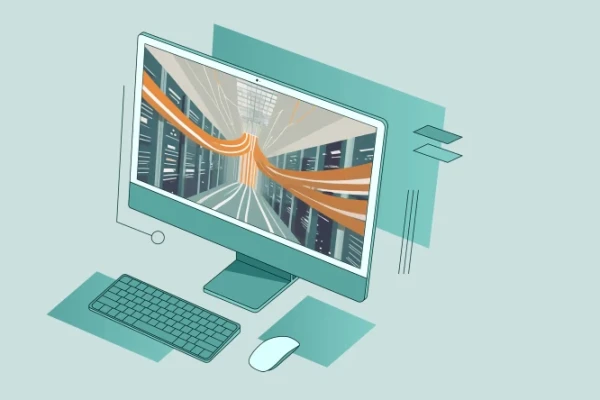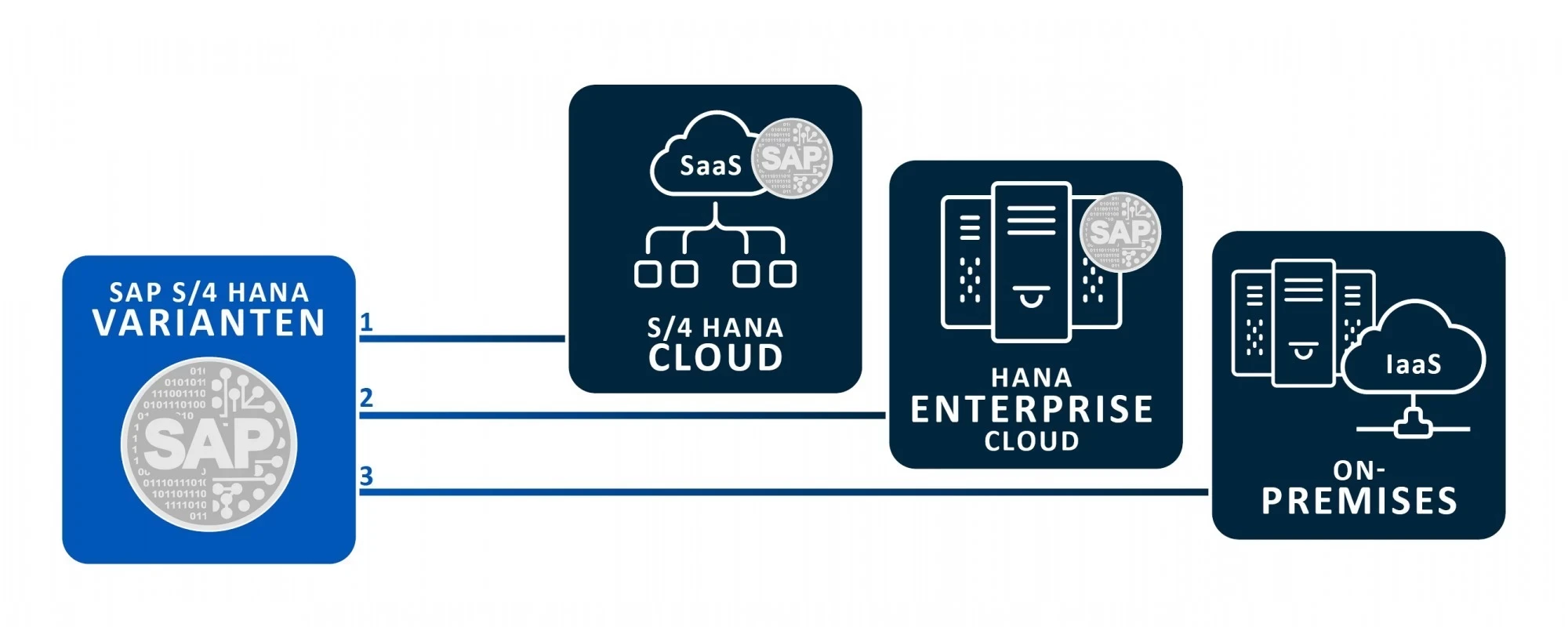SAP S/4HANA variants - three routes through the jungle
Even if the maintenance of SAP R/3, which was initially limited until 2025, has now been extended in large parts until 2027 or 2030, it is advisable to use the time now and take a close look at the right path to SAP S/4HANA. After all, this changeover is more than just a technical release change. There are many options as to which version of SAP S/4HANA you can use in the future and how you can operate your SAP system landscape. Three main options are described below:
SAP S/4HANA Cloud (essentials / extended)
This is an exclusive “Software as a Service” (SaaS) offering from SAP. It is essentially limited to the basic functions of S/4HANA and offers standard processes based on best practices for core functions such as Finance, HR and Sales. Additional functions from selected industries are also included, depending on the model selected.
In the “essentials” variant, systems and data are actually located in a shared environment. This means that they are not alone in the system.
The “extended” variant, on the other hand, makes your systems available in a dedicated SAP cloud environment. In both cases, you cannot make any modifications to the software; only limited configurations are possible. You are also tied to fixed software release cycles. Licenses do not have to be purchased; payment is made via a rental model (subscription).
SAP HANA Enterprise Cloud (HEC)
The private-managed cloud solution in the SAP data centers is the HANA Enterprise Cloud, or HEC for short. S/4HANA systems with a full range of functions can be obtained, which are installed in a dedicated cloud environment and operated there by SAP. Modifications to the software are possible, as the responsibility for operation and processes initially lies with you, the customer. In addition to fixed software release cycles, which can cause significant costs for non-standardized solutions and processes, predefined service provision processes must also be adhered to. When it comes to licenses, you have the choice between a rental model (subscription) or bringing your own licenses (“BYOL” - bring your own license).
SAP on-premises
With the “on-premises” installation, you remain flexible in the operation and use of your systems. S/4HANA systems can be installed with the full range of functions and with any industry specifics. These can be operated as a private cloud solution either in your own data center, in that of a service provider (e.g. SPIRIT/21) or on an “Infrastructure as a Service” solution (IaaS) of the hyperscalers (e.g. Amazon AWS or Microsoft Azure). This variant offers a number of advantages: : Here you are flexible and in charge of both the operation of the platform and the application - of course, these can also be outsourced as a managed service. When updating the software, you only have to observe the manufacturer’s maintenance commitments, otherwise you continue to determine the speed yourself.
The licenses are typically classic software licenses that are purchased once and for which an annual maintenance fee is charged. As an experienced SAP consulting and implementation partner, SPIRIT/21 can provide you with expert support for this option in particular - starting with the development of your individual SAP on-premises strategy, tailored and optimized to your specific needs, through to the installation of your S/4HANA systems and operation.
A complex decision
In addition to the S/4 core systems, there are also pure SaaS offerings from SAP, such as SAP Ariba for purchasing processes, SAP SucessFactors for HR or SAP C/4 HANA for CRM and eCommerce processes. These are currently only available as cloud services from SAP and can be connected to the S/4 core system in various expansion stages as part of a hybrid scenario in order to expand its functions.
Of course, individual factors such as the initial situation of the system landscape and its transformation, questions relating to a future operating model, costs for implementation and the licensing model, the company’s cloud strategy, the degree of process standardization, the upcoming change process and many other topics are also relevant for a final decision.
Due to the diversity and complexity, it is therefore advisable to examine the overall picture and the individual starting position together with experienced consultants in order to find the right navigation for your route. The specialists at SPIRIT/21 are on hand with their expertise and look forward to talking to you.
Learn more

What changes and innovations can customers expect when switching to the new SAP S/4HANA 2023 release? A brief insight into the new release strategy and highlights of the new release at application level.

Learn how SAP S/4HANA Cloud is being rolled out as a complete package. Read our blog for comprehensive insights and practical tips.

Find out how to successfully plan and implement your SAP S/4HANA conversion pre-project.
Markus Wühr
SAP
Phone: +49 173 301 2293
E-Mail: mwuehr@spirit21.com
As a senior project manager, Markus was responsible for the SAP S/4HANA implementation at odelo GmbH, among other things.

